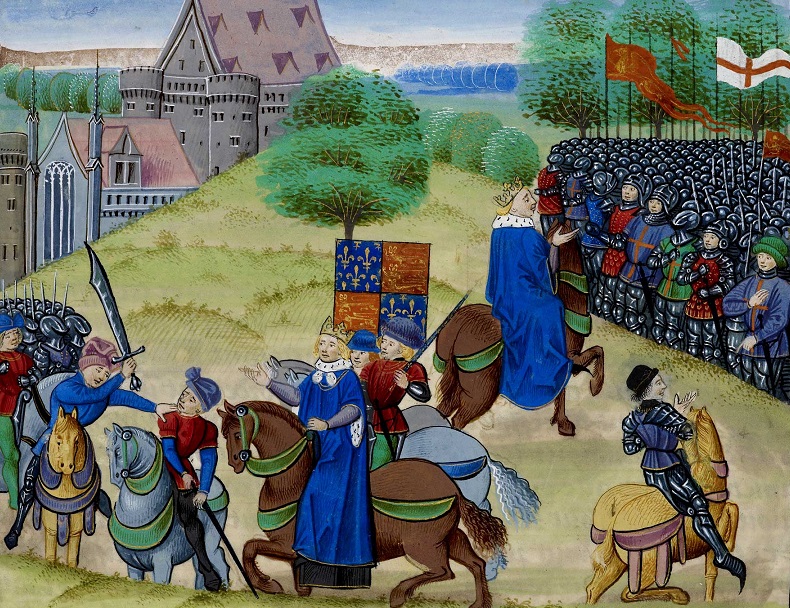The word ‘rebel’ is usually associated with violence, but we hear it almost daily at the moment as MPs grapple over Brexit. Medieval historian Andy Ford explores the fourteenth century origins of the word and finds some similarities with how it is being used today.
All of a sudden, it seems, we have a Parliament of ‘rebels.’ Earlier this month, over 100 Conservative backbenchers voted to defeat the Government’s flagship Brexit legislation while there is increasing discontent amongst Labour MPs with their leadership’s position over the priority that should be given to a second referendum.
Describing these actions as ‘rebellious’ may seem odd given the very strong modern associations of the term with violent acts against the established political order, but there are some similarities in usage in medieval court records.
After the plague
During the fourteenth century, Justices of the Peace emerged as an integral part of local legal administration and extant Peace Rolls record the court proceedings before them.
While there are relatively few of these records, they do provide a fascinating insight into socio-economic conditions in England, particularly after the Black Death and the period preceding and following the uprising of 1381.
Peaceful protest
The term ‘rebellis’ was used in 81 indictments in the Peace Rolls during this period. However, the people who were accused in this way were not indicted for violent offences against the political order. Rather the term was used in most cases specifically to describe women and men who refused to comply with the terms of the Statute of Labourers which was introduced in 1351 as a response to the labour shortages created by the Black Death.
Their alleged offences included refusing to work except for prohibited rates of pay, moving between villages in search of better-paid work and, most frequently, refusing to swear an oath before the village constable of compliance with the Statute. These therefore were ‘rebels’ who were embarking upon non-violent forms of resistance to the Government’s legislation.
While the Peace Rolls recorded many violent assaults upon village constables and other local authority figures, those accused were never described as ‘rebels.’ Nor were those indicted before the Justices for their involvement in significant insurrections in Salisbury in 1380 and in Coventry and Oxfordshire during the 1390s, even when the last of these involved a plot to kill the king.
Rebels’ revolt?
There are few references in the Peace Rolls to the revolt of 1381, but other judicial and Government records do address it. Historians have increasingly referred to its participants as ‘rebels’.
This is probably because research has demonstrated that those involved came from a broad cross-section of society rather than simply ‘peasants’ as was previously thought. It probably also reflects the difficulties of finding comfortable translations into modern English of the many contemporary Latin descriptions of the participants as ‘malefactores’.
In fact, the judicial and Government documents of the time rarely used the word ‘rebelles’ to describe those who took part in the uprising. Where they did, it is therefore quite probable that they were not referring to the participants necessarily as people intent on using violence to challenge the political order. Rather, as the Peace Rolls demonstrate, they were disenchanted rural labourers who were refusing to comply with the constraints imposed upon them by the Government’s legislation.
To that extent, therefore, the uprising of 1381 was indeed a peasants’ revolt.
Andy Ford is completing an MRes in Medieval Studies within Reading’s Graduate Centre for Medieval Studies.

